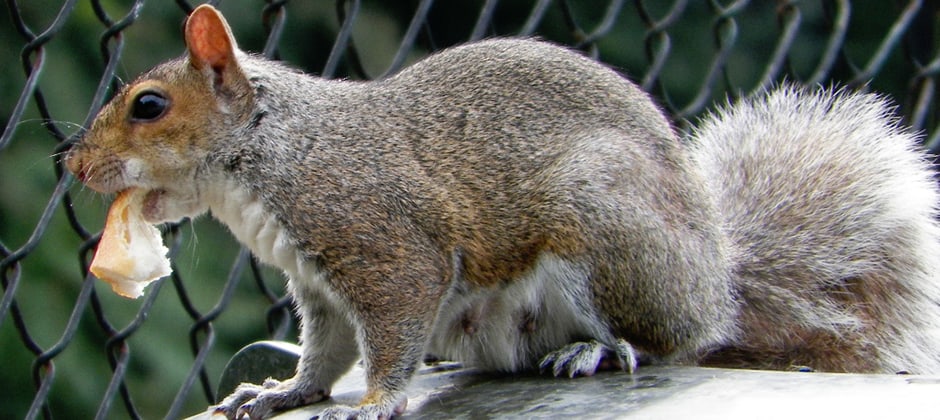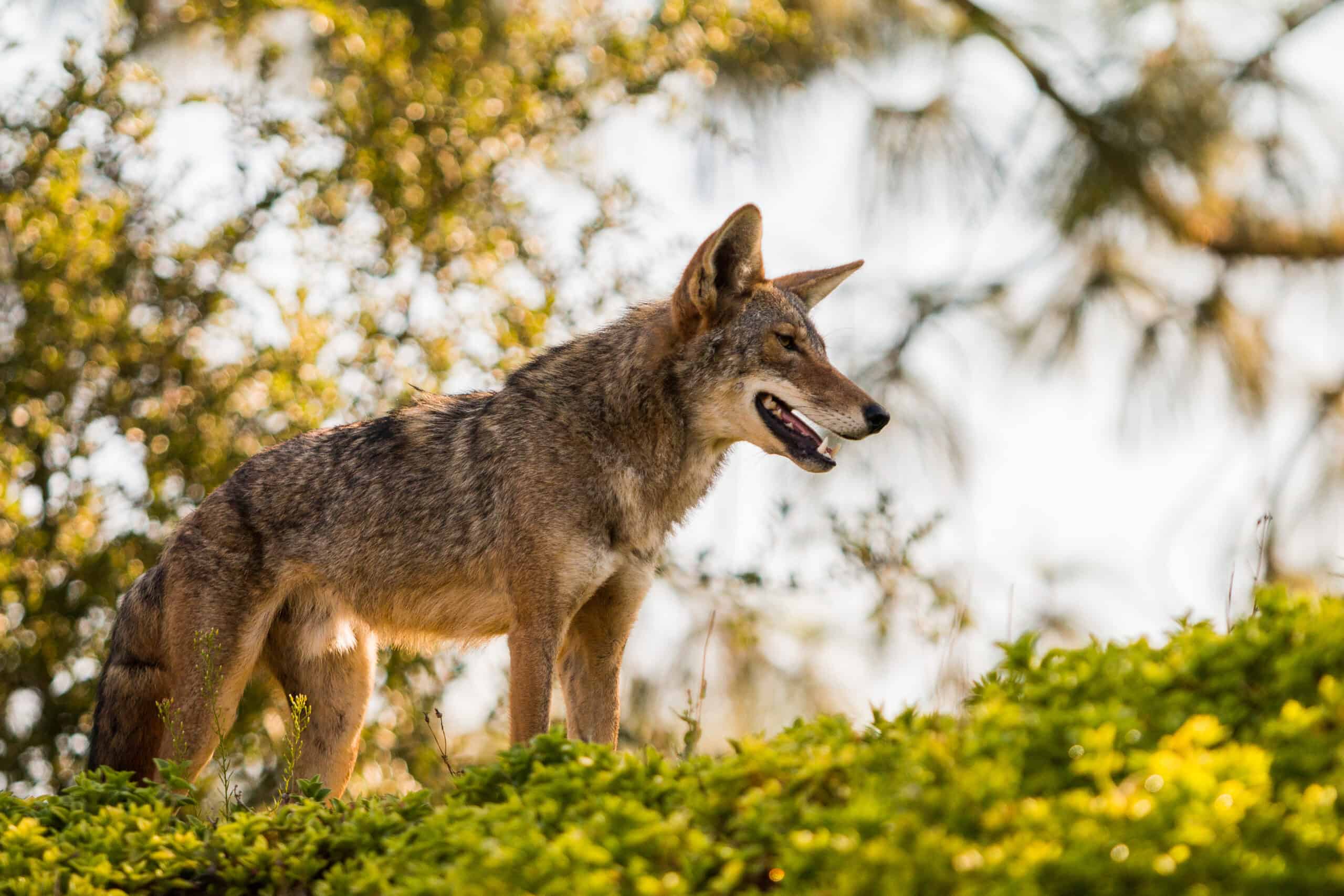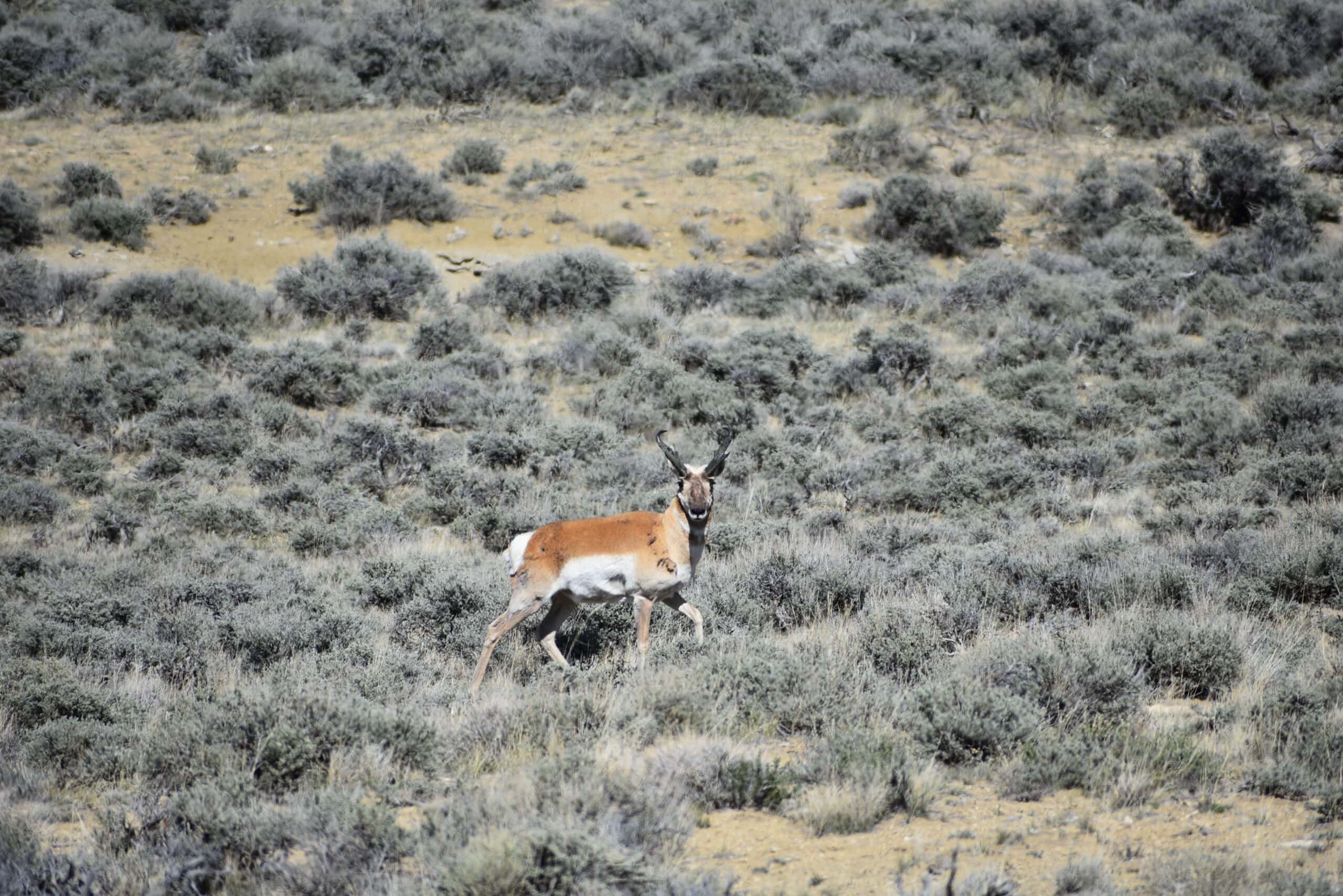Share this article
TWS2021: Even rural squirrels consume plastic
With COVID-19 regulations resulting in a greater use of disposable masks and gloves, students were noticing an increase in plastic showing up in trashcans on Concordia College’s campus in northwestern Minnesota.
Since they also often saw gray squirrels (Sciurus carolinensis) foraging in these garbage cans, they wondered how they might be affected by this increase in plastic.
“When squirrels forage through these sources, they may ingest plastic that could break down and accumulate in their guts,” said Faith James, an undergraduate student at Concordia College, in a presentation on her research at The Wildlife Society’s virtual annual conference.
James and her colleagues set out to determine what kind of plastic the campus squirrels were consuming, how plastic they were eating and how that might compare with rural squirrels.
Rooting through trashcans on campus, they sifted through the contents to see what kinds of plastics they found. Then, they trapped and radio collared squirrels to observe their squirrel behavior and see how they interacted with the different plastic sources on campus. They also collected dead squirrels found on campus and squirrels harvested by hunters in rural areas to see what was in their gastrointestinal tracts, extract they microplastics compare the diets of college squirrels and rural squirrels.
There wasn’t much difference. “In fact, rural squirrels had a slightly higher average number of microplastics, which was surprising to us because we expected there to be more quote-unquote unnatural and anthropogenic food sources in urban areas versus rural.”
James said this shows how widespread the impacts of plastic pollution are on gray squirrels. “We conclude that this probably just indicates how pervasive human activities are and that they can negatively affect both urban and rural ecosystems,” she said.
Header Image: Researchers quantified microplastics in the guts of gray squirrels on their college campus. Credit: Rich Mitchell








